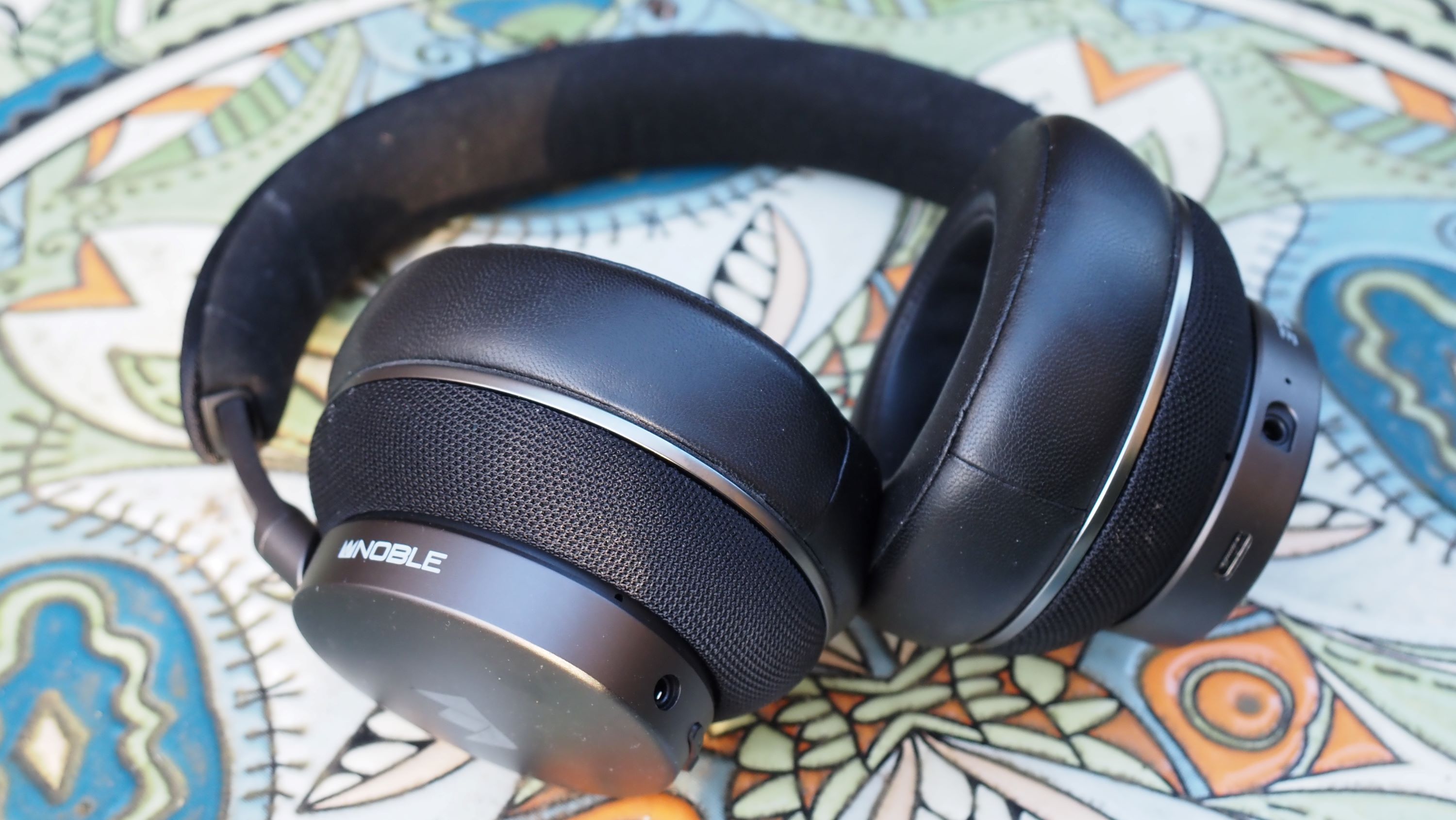
Noble has developed something of a reputation in audio, one which many would kill to have. Where some are known for making wallet-friendly buds, or others are renowned for energetic bass, Noble has carved out a reputation at the top-tier, as a maker of truly quality products. And as the mentions of ‘premium’, ‘quality’ and ‘luxury’ might suggest, nothing from Noble comes cheap.
From wired reference buds to luxurious TWS options, there’s little the brand hasn’t tried its hand at to date, except a premium set of wireless over-ear headphones. That is until now, enter the Fokus Apollo, its first such set.
The first giveaway that it is a Noble product? The price, at $/£649, is a lot higher than most options available, but for the money you get the promise of a level of polish and a range of features seldom seen elsewhere.
Included are planar magnetic drivers, high-quality microphones, every connection type known to man, an all-metal build, every kind of Bluetooth codec and more. These are headphones without any sacrifices to build cost, but that means they are requisitely expensive, even more than the AirPods Max.
So the question is, are they worth the wait? Do they live up to the hype? Is this the best set of Bluetooth over-ear headphones that money can buy? Read on for our full review.
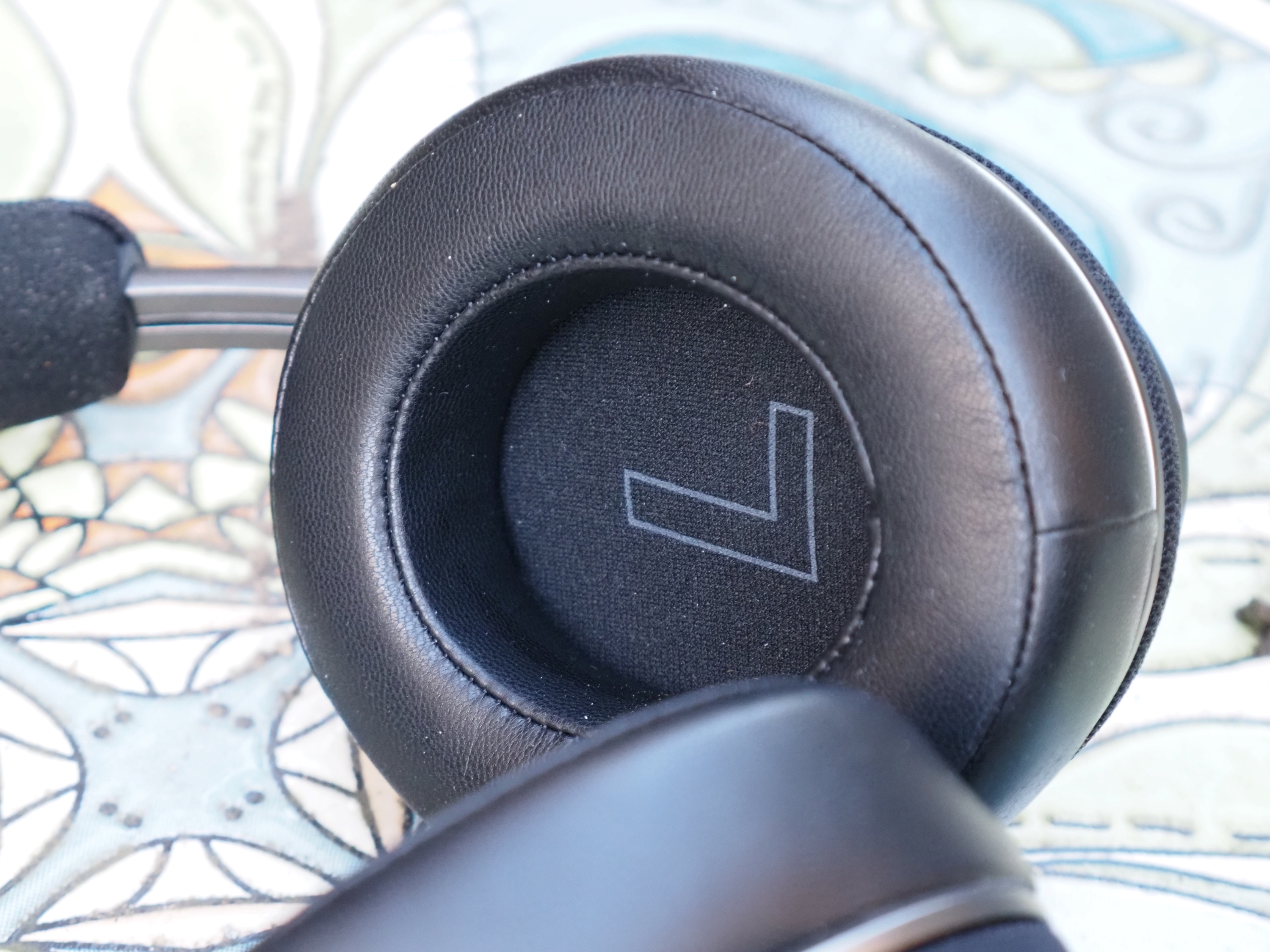
In the box
In the surprisingly large box for the Fokus Apollo comes a relative bevy of treats. There’s a large carrying case, which is rigid to provide protection, along with a selection of cables and add-ons. There’s a small detachable boom mic, a 3.5mm audio cable, a USB-C cable, a two-prong airline adapter, a ¼ adapter for headphone amps and more. Wherever you go, whatever you do, the Fokus Apollo can be taken with you.
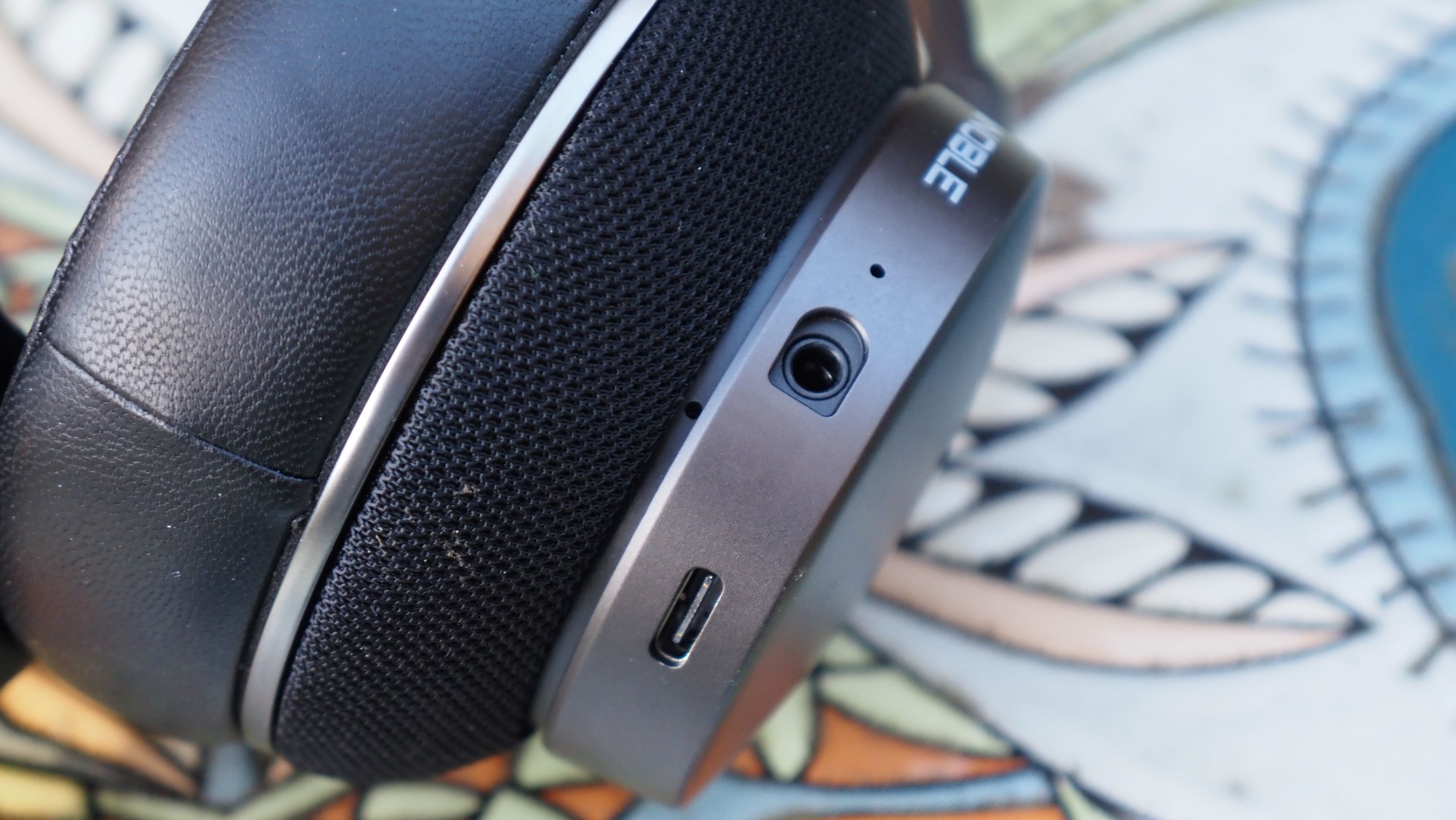
Design and build
When it comes to over-ear headphones, there’s a delicate balance to strike with design. There’s the need to produce something sufficiently light that it isn’t heavy to wear, but that isn’t also constructed from cheap and flimsy materials. Finding the right note between comfort and luxury is difficult, if not impossible.
Picking up the Noble Fokus Apollo, the first thing that you’ll notice is the weight. Though an exact figure isn’t provided, without overstating things they feel chunky and substantial. This is mainly positive, as it means they feel ‘worth it’, they don’t come across as cheap in any way.
The weight and the feel come in large part from the anodised aluminium frame. There’s no plastic in this design, meaning they feel robust and of good quality overall. A lot of the competition uses plastic at least in part to keep weight down, but not so here.
On the inside of the frame, there’s a thick memory foam band which keeps the fit comfortable for the most part. I did find after extended sessions that sometimes the Apollo could become a little heavy, however this might not hold true for all.
An issue with the weight, depending on your preferences, is that they can sit a little heavily on the head, and the grip provided by the cups is strong, maybe a little too much so for some. Admittedly my head is a little larger than average, this may not be an issue for others.
You can choose the Fokus Apollo in any colour you like, so long as that is grey. On the whole, they look muted and somewhat understated, though still classy. These aren’t headphones which will set the world alight, but they look good and will fit into nearly any situation, which seems to have been a key design consideration.
Setup and features
As is to be expected with any premium audio product in 2024, the Fokus Apollo come with a companion app. It’s a relatively stripped-back affair, you can use it to apply software updates and change some functions, but not much more.
A real value add is an included short listening test which then allows you to apply your own custom EQ to songs. This plays a selection of tones at different frequencies and takes around 5 minutes to complete. You can adjust the end product to your preference, but the average result is a listening profile that’s more energetic and warmer than it might otherwise have been.
There’s a host of button controls on the body of the headphones too, which is a big plus, there are no awkward touch controls here. Nice inclusions are a microphone mute switch and a big volume rocker.
By far the most useful inclusion is the ANC mode button, which is a first from Noble, though the execution doesn’t show it. With full ANC active, you’d be hard-pressed to hear a peep from the outside world, though not so much that you are completely removed from the present. Focussing on removing the likes of droning sounds and the hum of traffic, it helps to keep your focus on the music and is a godsend in a busy open office.
The transparency mode is a little less successful but no less useful. Though it doesn’t work quite as a hearing aid (should that be what you want), it manages to bring the outside in and is great when wearing Fokus Apollo to shop, or in any other situation where you need some awareness.
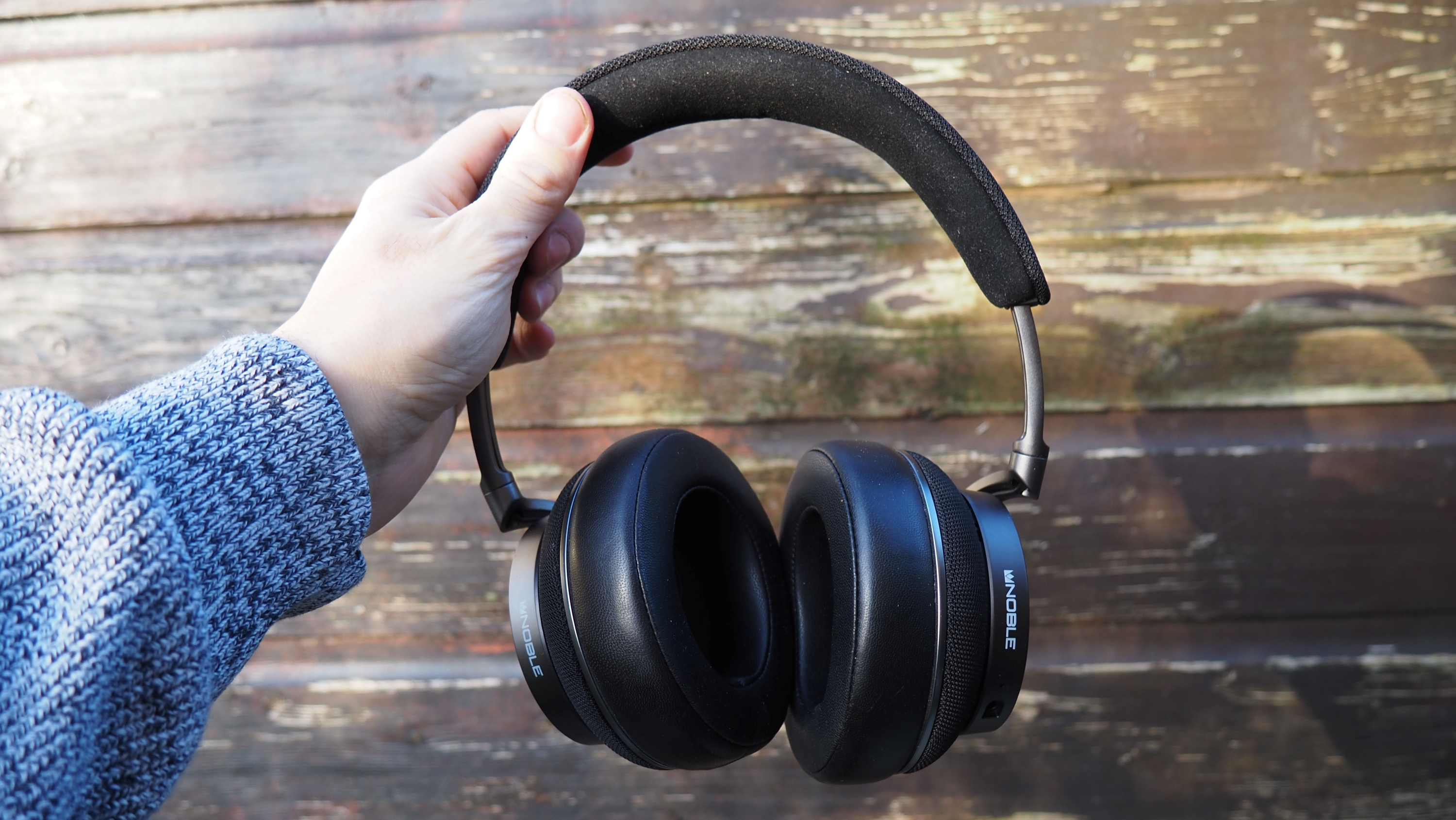
Performance
No matter how luxurious the design, no matter how packed full of gubbins they might be, any set of headphones can only ultimately be judged by their sonic performance. That’s especially true coming from Noble, the brand has made a name as a pioneer for quality in the space, the expectation is that the Fokus Apollo won’t just be good but genre-defining.
That’s an expectation set in part by the components used. Here we have 40mm dynamic drivers along with 14.5 planar magnetic drivers, paired together in a world-first arrangement, to bring the benefits of both technologies to bear. So are they worth it?
In a word, yes. The Noble Fokus Apollo produce nothing short of a masterpiece of a listening experience. The soundstage is vast and compelling, bass is punchy and warm, mid-tones have no harshness and are expressive, and the trebles have a compelling clarity and sparkle to them.
Listening to the likes of Rachmaninoff’s Symphony No.1, I was immediately won over by the rendition of fine detail and the sense of space given to the recording. This is sometimes lacking with Bluetooth headsets, but not so with the Fokus Apollo. If you really want to bring out the detail in the high end it seems, planar magnetic drivers are the way to go.
It can be difficult to quantify the distinction between what is an enjoyable listen versus an accurate listen, and the Fokus Apollo doesn’t help this as it provides both at once. Nothing feels over-egged or pushed, yet everything remains engaging. This, it seems, is the difference that price can provide.
Who is it for?
If you are the kind of person at whom the Noble Fokus Apollo is targeted, it’s likely you already know. These are expensive, premium headphones looking at those who want the absolute best from their listening experience. If that’s you, you’ll find these to be a compelling set of over-ears, with a long list of qualities that set them above cheaper peers.
However, should you be someone who doesn’t need or want the absolute best, maybe something simple for the commute, you don’t need to spend north of $/£500 to achieve that, other, better fits will be available.
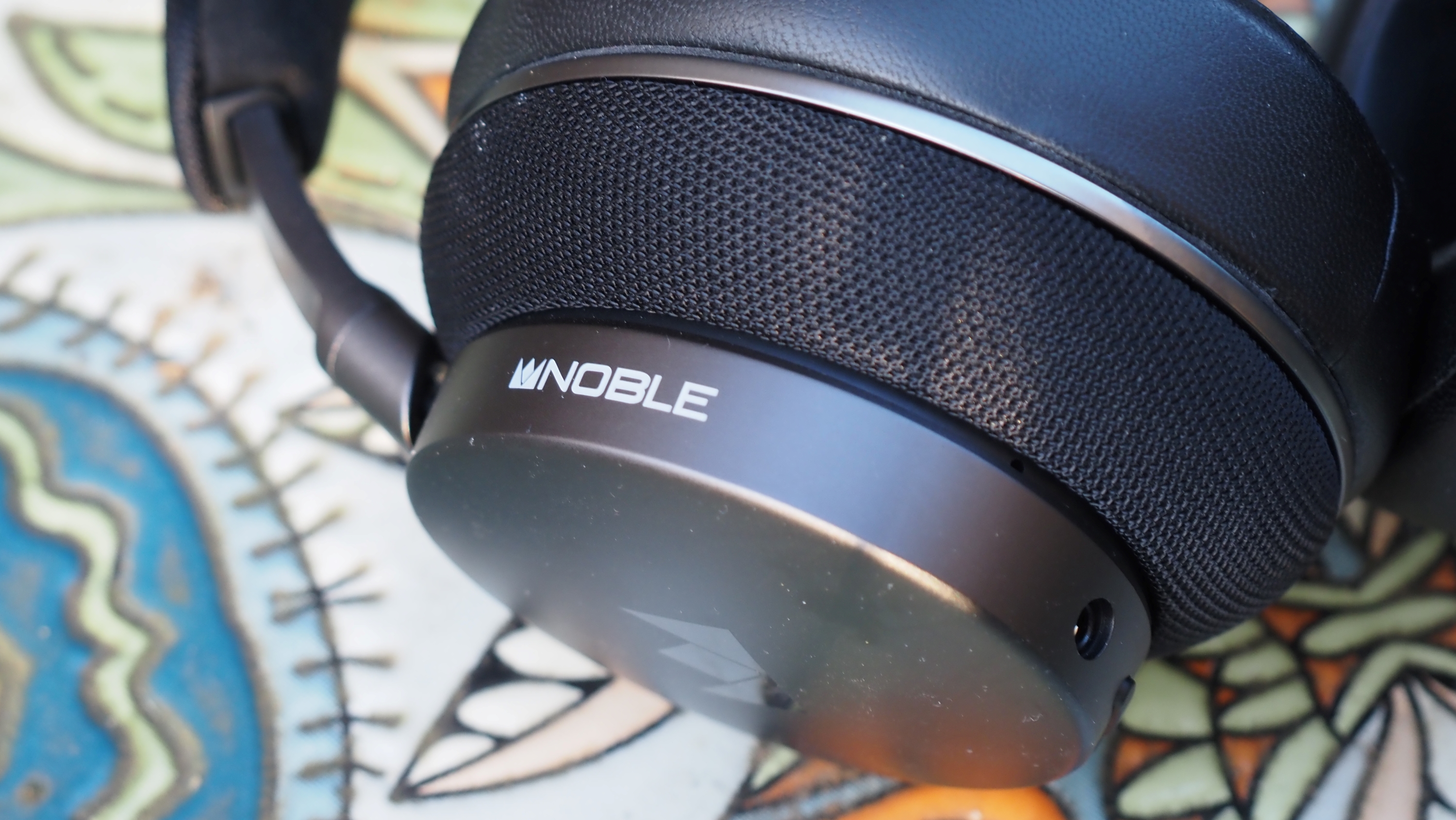
Buy it if...
- You want a premium listening experience
- You want great noise cancellation
- Money is no object
Don't buy it if...
- You like your headphones as light as possible
- You don’t need the absolute best in sound quality
- Money is an object







